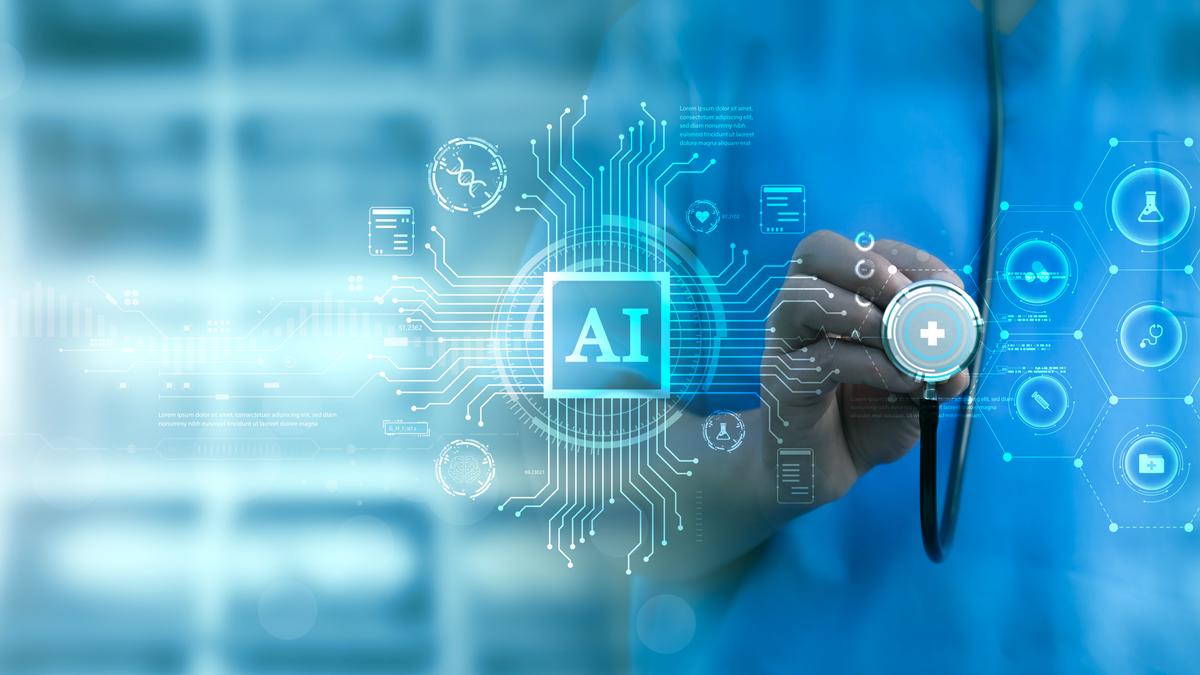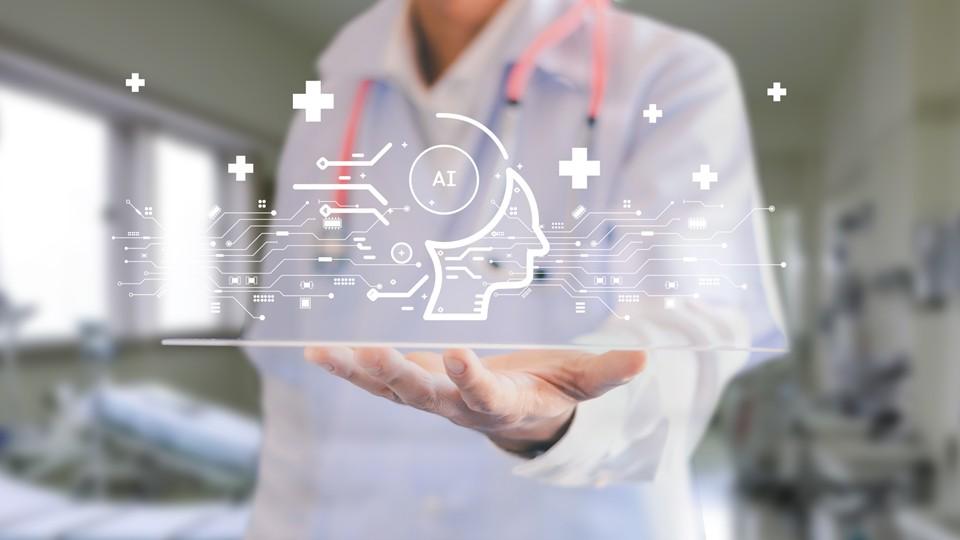Artificial intelligence: The saviour of the pharmaceutical industry?

There is a lot, and I mean a lot, of discussion right now about the potential for artificial intelligence (AI) to transform the pharmaceutical industry (as, indeed, there is across all industries). As such, it formed the key topic on the agenda at the UK’s Pharmaceutical Industry Networking Group (PING) meeting, held earlier in June.
The meeting, first launched in 2012, is chaired and organised by Paul Gershlick, partner at law firm VWV, and supported by the Watford Chamber of Commerce, Watford Council, and Hertfordshire Local Enterprise Partnership, all with the intent of facilitating good industry practice.
The 2024 event was held at Knebworth House, with Gershlick reminding us that it still holds the UK record for highest attendance at a concert, thanks to Robbie Williams enticing 375,000 people to come along over three days back in 2003. While the PING event couldn’t quite match that scale, we all know that the work of pharma touches millions of lives every day, so it’s just as much of a rock star when it gets it right. Indeed, McKinsey recently forecast that just one aspect of AI, Gen AI, could generate $60-$110 billion of economic value annually for the industry.
However, coming into the meeting, I’ll admit to heralding some concern about the current direction of AI in pharma, for two reasons. Firstly, it feels like the industry is sprinkling AI pilots across the surface of everything it does, rather than trying to deep dive in on where the problems are that it could really solve. Secondly, I worry that it’s falling into the same trap as many a new technology, which is assuming it will solve all our problems for us, when the human element will still, in my opinion, remain the key driver. Remember: technology is always an enabler, never a solution on its own.
Andrée Bates, founder and CEO of Eularis, also reflected on there being more to AI than the technology in her keynote, reminding those in attendance that it’s been around for decades in various forms, and that the availability of the right data to train the algorithm remains a key component. For example, Amazon tried using AI for screening recruits, but quickly found a bias towards men, given the unbalanced pool of CVs it had learned from.
Nevertheless, there have been some notable successes, such as Bank of America integrating AI into customer service and seeing levels of satisfaction increase. Within pharma, Bates sees increasing potential for AI in the regulatory space, including broader adoption of ‘digital twins’ for trials, which holds both ethical and efficiency benefits. In the US, the FDA now allows synthetic data to be used in Phase I and II trials, plus control arms of Phase III trials, which also addresses some of the privacy concerns (and the risk of unblinding in the social media age).
How AI might transform pharma in the coming years
Building on Bates’ keynote, there is clearly great potential to accelerate and optimise an R&D process that has not changed significantly in decades. Darren Spevick, founder and managing director at Russell Strategy Partners, explored this theme with a panel featuring BenevolentAI (Nicola Richmond, VP of AI), Charles River Laboratories (Gareth Langley, research leader), Healx (Nick Street, head of operations, people and tech) and Ignota Labs (Jordan Lane, chief scientific officer). They reminded us of the staggering cost of failure and chasing the wrong targets in R&D (estimated to be over $1 trillion) and asserted that AI could help get to that critical go / no go decision much more quickly, while also heralding great potential to discover new medicines in rare disease, where around only 3% of these conditions currently have any pharmacological treatments.
Dr Sola Adeleke, founder and CEO of Curenetics, also outlined how AI could transform the application of personalised medicine, by overlaying imaging data with genomic and clinical data to identify key biomarkers predicting success – surely a critical application when we know that often it is only a small proportion of patients that respond well to any specific drug.
But there are also efficiencies to be gained downstream from R&D though the smart use of AI. Philip Ashton, co-founder and CEO of 7bridges, explained how digital twins and AI could assess the potentially large impact of small changes in supply chain infrastructure. James Turnbull, founder of Camino Communications, also reminded us of the incredible efficiency gains to be made from AI in analysing the research landscape, with a real-life case study of filtering 1,600 academic papers down to the ~20 key ones in a timescale not possible through human effort alone.
For me, one of the more interesting presentations of the day came from Dr Rav Seeruthun, chief executive officer of health-equity.ai. Based on his prior experience working within the industry - and frustration at seeing wildly different outcomes for the same disease in different regions - his company is using AI fed by the numerous open-source health datasets in the UK to understand why outcomes are so variable and what levers to pull to change this. This is surely AI at its best: situations where there is a clear problem and vast amounts of data available to solve it.
One cautionary note from Harry Jennings, life sciences partner at VWV, in that the legal / IP landscape for AI is still very nascent. While organisations can consider protecting their ownership of the technology, data, and outputs, there is a great deal of case law ongoing that will shape this space over the next few years. His immediate recommendation is to consider organisational changes to protect data as one key element that can be controlled. And Jennings’ follow on series, Make Me Intelligent, will be starting after the summer, providing a deeper dive into some of the legal issues.
Key takeaways on the potential of AI in life sciences
Whatever your thoughts on AI, it is here to stay and it will massively impact every industry and all of our lives. Its potential in life sciences is huge, if applied in the right way. I’m not sure anyone knows exactly what that will look like – yet – but here are my key takeaways, stimulated by this insightful meeting.
- AI can, in theory, do anything you ask it to do, but it doesn’t mean it should. Effective application starts with identifying a clear problem, not trying to find a problem for a solution. Companies should really focus in on where it can make a big difference and double down on those areas, rather than sprinkling AI across everything.
- It seems that the most beneficial areas for application of AI are ones where there is a lower level of ‘new’ innovation / creativity needed and a wealth of existing information (remember, AI feeds off the data that is already out there) and the manual workload currently needed is very high – this is where we will see the biggest impact in pharma.
- The true power is in the availability and quality of the data that you feed in and less about the processing technology itself (albeit, the degree to which the AI has already learned from existing data is also key). Be aware of this when applying AI and also in monitoring the evolving legal landscape.
- Companies should be extremely wary of trying to build these capabilities in-house, which was a frustration expressed by most of the speakers as a rate-limiting step, holding things back. We’ve seen this before with digital transformation and it rarely, if ever, works without external support. Biopharma is great at understanding diseases and developing and commercialising novel interventions at scale – they’re not fundamentally technology or data science experts.
To bring us back to Robbie Williams’ record-breaking concert at Knebworth, if you had to pick one of his songs as a mantra for pharma, it would have to be ‘Old Before I Die’. However, I’d reflect more on another of his songs – and one of my favourites – in that the right application of AI in our industry could herald ‘Something Beautiful’ for patients.
Indeed, as the opening line of that song says, “You can’t manufacture a miracle”, but perhaps with the power of AI we can deliver a lot more of the right medicines to the right patients at the right time to get close.
With thanks to Paul Gershlick and PING for the invite to attend.












